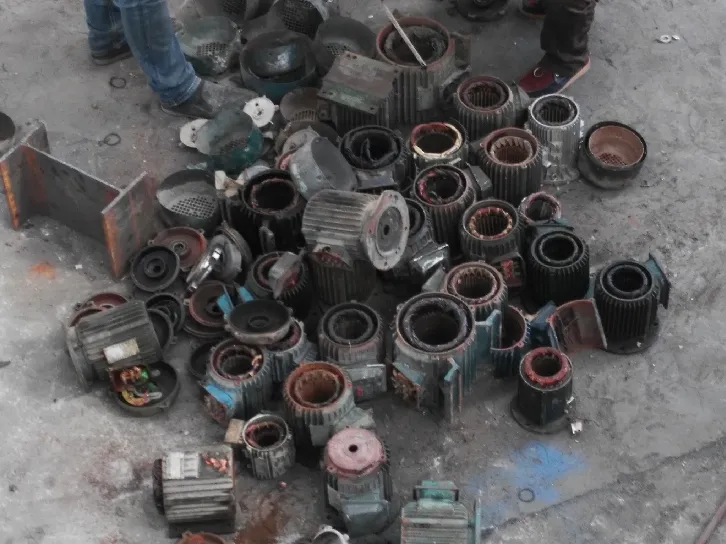
9 月 . 30, 2024 03:14 Back to list
The Role of Steel Shredders in Recycling and Manufacturing
Steel shredders play a pivotal role in the recycling and manufacturing sectors, profoundly influencing how scrap metal is processed and reused. These powerful machines are designed to shred large quantities of metal, particularly steel, which is an essential material in various industries, from automotive to construction. As the world increasingly emphasizes sustainability and resource conservation, the importance of efficient steel shredding continues to grow.
At the core of the steel recycling process, shredders serve as the first step in material recovery. Raw scrap steel is often large and unwieldy; therefore, effective shredding is crucial to breaking it down into manageable pieces. The process begins with the collection of scrap metal, which can come from a myriad of sources, including old vehicles, buildings, and industrial waste. Once collected, the scrap metal is transported to recycling facilities equipped with steel shredders.
The design of steel shredders is engineered for durability and efficiency
. They typically consist of heavy-duty rotating knives or hammers that rapidly spin, applying tremendous force to shred the steel into smaller, uniform pieces. This transformation is essential not only for ease of handling but also for improving the efficiency of subsequent processes, such as melting and casting. When the steel is reduced to smaller sizes, it allows for more uniform heating when it reaches the furnace, leading to a quicker and more economical melting process.Moreover, steel shredders are integral to the separation of materials. When shredding mixed scrap, these machines can help identify and segregate various types of metals, plastics, and non-metallic components. This separation is critical for maximizing the recovery of valuable metals and ensuring that contaminants do not interfere with the quality of the recycled steel. Modern shredders often incorporate advanced technologies, such as magnet separation and eddy current separators, to accurately sort shredded materials, enhancing the overall recycling process.

The benefits of steel shredding extend beyond mere recycling; they encompass environmental sustainability, economic efficiency, and resource conservation. Recycling steel significantly reduces the demand for virgin materials, which is vital given the growing awareness of environmental issues related to mining and extraction. It takes considerably less energy to recycle steel than to produce it from raw resources, leading to a smaller carbon footprint. By recycling steel, we can conserve natural resources and reduce greenhouse gas emissions associated with steel production.
From an economic standpoint, the steel shredding industry supports local economies by creating jobs and fostering businesses that specialize in recycling. With the rising demand for recycled steel, many regions are investing in advanced shredding technologies, contributing to economic development and promoting sustainable practices. Furthermore, industries that rely on recycled steel benefit from lower material costs, enabling them to remain competitive while also pursuing environmentally friendly practices.
The future of steel shredders looks promising as technology advances. Innovations in automation and artificial intelligence are expected to enhance the efficiency and precision of shredding processes. Smart shredders equipped with predictive maintenance systems can optimize operational performance and reduce downtime, leading to higher productivity and lower operating costs. As industries continue to adopt more sustainable practices, the demand for efficient steel shredders is likely to increase, positioning them as essential components of the circular economy.
In conclusion, steel shredders are crucial to the recycling and manufacturing industries. They facilitate the efficient processing of scrap metal, contributing to environmental sustainability and economic growth. By enhancing the quality of recycled materials and promoting resource conservation, steel shredders not only play a vital role in waste management but also support the global transition towards a more sustainable and circular economy. As technology advances, these machines will undoubtedly evolve, continuing to meet the demands of a changing industry landscape while championing the principles of sustainability.
Latest news
Unveiling the Power of Eddy Current Separator
NewsSep.25,2024
Transform Your Home Recyclin:home metal shredder
NewsSep.25,2024
The Future of Waste Management with Recycling Line Picker
NewsSep.25,2024
The Benefits of a Metal Recycling Plant
NewsSep.25,2024
Revolutionize Material Separation with Onwang Technology
NewsSep.25,2024
Innovative Waste Management: Unveiling the MSW Sorting Plant
NewsSep.25,2024